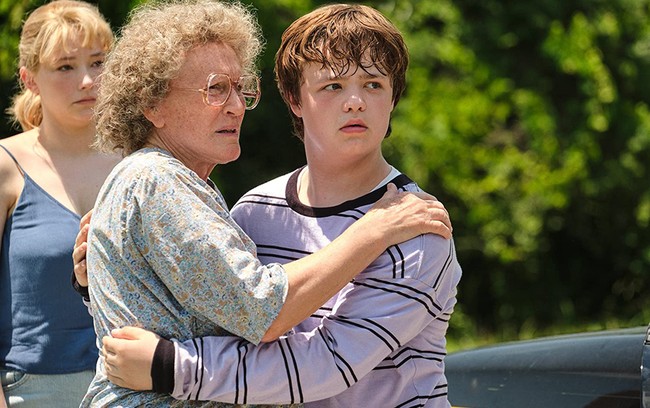JD Vance, the current Republican candidate for vice president of the United States is, as we all know, something a little different. While he attended Yale Law School, his origins aren’t typical for a member of today’s political class; he grew up in Middletown, Ohio, spending his summers with his family in eastern Kentucky, from whence they sprang. Vance’s youth, according to his autobiography “Hillbilly Elegy,” was marked by poverty, drugs, and abuse, a legacy that he overcame to enter the United States Senate and then become former President Trump’s running mate in the 2024 presidential election.
Since JD Vance is now the vice presidential candidate, his biography is now understandably drawing a lot of interest. Friday night, my wife and I finally watched the movie version of “Hillbilly Elegy,” and in summary, I will say only this: If you haven’t already, I recommend you see this film.

First, the film itself. The production company, Imagine Entertainment, put together a great cast, with Amy Adams as Beverly Vance, JD’s troubled mother, and Glenn Close as Mamaw, JD’s tough-as-nails grandmother. Both women were amazing in these roles; Glenn Close’s action chops have been long established, but she pulls off the chain-smoking, gravelly-voiced Mamaw superbly. Amy Adams brings a heart-wrenching performance as Beverly, who struggles throughout the film with addiction and a violent temper. Also, the production company achieved something that I would have thought impossible: transforming the lovely Amy Adams into the tired, unkempt, and plain Beverly. However, the real stars of the piece are young actor Owen Asztalos as the young JD – this young man is going places in show business – and Gabriel Basso, the grown JD.
Close steals the show, even from the young JD. Her portrayal of JD’s grandmother binds the entire film together; she shows us a Mamaw who overcame troubles in her own life and who holds her family together through sheer force of will. The character of Mamaw in this film, in fact, reminds me of a character who is generally regarded as one of the strongest female characters in the history of American literature, that being Ma Joad from John Steinbeck’s classic novel “The Grapes of Wrath .” Like Ma Joad, Mamaw Vance dealt with many things, not least of which was poverty. Like Ma Joad, Mamaw is presented as having a will of iron and a determination to hold her family together at all costs. And like Ma Joad with her son Tommy, Mamaw sees in young JD a boy who can escape the bad parts of his legacy while holding onto the good.
Speaking of that: The most powerful message of this movie is that it is a quintessentially American story. It shows the young JD Vance, splitting his childhood between the hills of Kentucky and the rust-belt town of Middletown. Both actors that portray JD do a great job; the younger JD struggles to deal with his mother’s recurring addiction problems and serial boyfriends while, as the story proceeds, looking more and more to his grandmother. The older JD struggles as well, between having to deal with his mother’s ongoing problems while simultaneously looking to Yale Law School and a series of positions that will take him out of the cycle of poverty, into the greater world – and in so doing, being able to provide more help for his family than he would ever have been able to do by staying in Middletown.
And finally, a happy ending, of sorts: A note at the end of the film tells us that Beverly has, as of the film’s release, been sober for seven years. We know now that Beverly remains sober to this day, and was able to see her son nominated to be the Republican candidate for vice president of the United States. In 2025, she will see her 10th anniversary of being clean and sober and, should they win the election, may well be celebrated in the White House. A series of snapshots of Vance’s family as the credits roll show just how uncannily Adams and Close, in particular, captured the people they portrayed.
But most of all, this is the story of a man who is likely to be the nation’s next vice president, and was written and filmed long before he was nominated for that candidacy. It’s not a campaign hagiography; it is JD Vance’s story, based on the book written by the man himself, about the family he loves, and about his drive to escape the cycle of poverty. It’s an American story; JD Vance’s story is something we can all look at and recognize.
See Related: BREAKING: Trump Announces VP Pick
Usha Chilukuri Vance Introduces VP Candidate JD Vance at the Republican National Convention
Here’s the trailer, courtesy of Imagine Entertainment and Netflix. If you do nothing else this weekend, watch this movie: